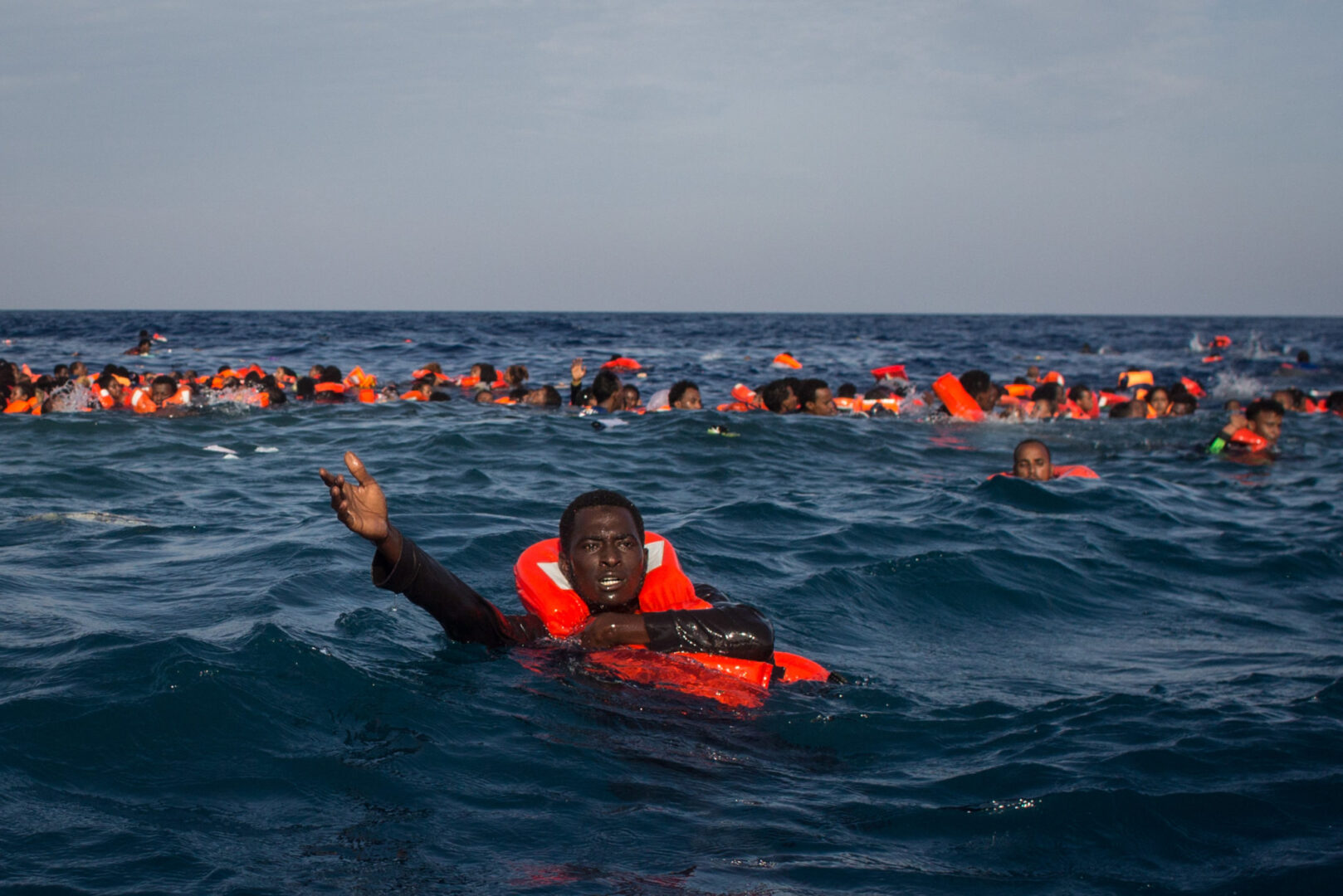A perfect storm: The failure of European policies in the Central Mediterranean finds that by ceding the lion’s share of responsibility for search and rescue to NGOs and by increasing cooperation with the Libyan coastguard, European governments are failing to prevent drownings and turning a blind eye to abuse, including torture and rape.
EU Ministers meeting in Tallinn today are set to discuss new proposals that will make a dire situation worse.
“If the second half of this year continues as the first and urgent action is not taken, 2017 looks set to become the deadliest year for the deadliest migration route in the world. The EU must rethink its cooperation with Libya’s woefully dysfunctional coastguard and deploy more vessels where they are desperately needed,” said John Dalhuisen, Amnesty International’s Europe Director.
“Rather than acting to save lives and offer protection, European Ministers meeting today are shamelessly prioritizing reckless deals with Libya in a desperate bid to prevent refugees and migrants from reaching Italy.”
“European states have progressively turned their backs on a search and rescue strategy that was reducing mortality at sea in favor of one that has seen thousands drown and left desperate men, women and children trapped in Libya, exposed to horrific abuses.”
Measures implemented by EU leaders to strengthen search and rescue capacity in the central Mediterranean in April 2015 dramatically decreased deaths at sea. But this priority, which saw several countries provide more rescue boats closer to Libyan territorial waters, was short-lived. Instead, EU governments have shifted their focus to disrupting smugglers and preventing departures of boats from Libya: a failing strategy that has led to ever more dangerous crossings and a threefold increase in the death-rate from 0.89 percent in the second half of 2015 to 2.7 percent in 2017.
Changes to smugglers’ practices and an increasing use of unseaworthy boats with a complete lack of safety equipment on board have made the sea crossing even more unsafe. But despite a spike in deaths – more than 2,000 since January – the EU is failing to deploy an adequately resourced and dedicated humanitarian operation near Libyan territorial waters. Instead it is focusing on strengthening the abilities of the Libyan coastguard to better prevent departures and perform interceptions.
Interceptions by the Libyan coastguard often put refugees and migrants at risk. Their operational techniques do not meet basic safety standards and can lead to panic and catastrophic capsizing.
There are also serious allegations that members of the coastguard collude with smugglers and evidence that they abuse migrants. Members of the Libyan coastguard have shot guns towards boats and a UN report last month reported that they were “directly involved in the sinking of migrant boats using firearms.”
One Nigerian man stranded with 140 others on a boat that was taking on water for nine hours told Amnesty International. “All of us were praying. When I saw the lights [of the rescue boat] I thought: please, please, not the Libyan police.”
A Bangladeshi man told Amnesty International what happened after he had been picked up by the Libyan coastguard. “We were 170, on a rubber boat. We were taken back to prison and we were asked for more money. They told us: ‘If you pay, nobody will stop you this time, because we are the coastguard’…Libyan prisons are just hell.”
EU cooperation with and training of the Libyan coastguard is currently taking place without an adequate accountability framework or system to monitor their conduct and performance. Those rescued by the coastguard are returned to Libya where they are routinely detained and tortured and where no asylum law or system exist. Those trapped in Libya are vulnerable to human rights violations and abuses including killings, torture, rape, kidnappings, forced labor, and arbitrary and indefinite detention in cruel, inhuman and degrading conditions.
One man from Gambia told Amnesty International: “I spent three months in prison…You sleep like sardines in the cell, on your side, because there is no space. They beat you if you do not lie down in the right way. The water for the toilet was also for drinking…I saw three people being tortured while I was in prison. One boy died during torture…They beat prisoners with pipes. I was beaten at night.”
Cooperation agreements aimed at improving the Libyan coastguards search and rescue capacity must be made conditional on rapid improvements in the quality of interventions and real accountability for abuses they are found responsible for.
They should also insist on the transfer of those rescued to vessels that will take them to EU countries where their safety and protection needs can be guaranteed.
“Ultimately the only sustainable and humane way to reduce the numbers risking such horrific journeys is to open more safe and legal routes for migrants and refugees to reach Europe,” said Dalhuisen.

